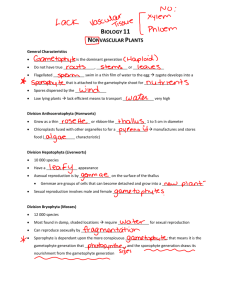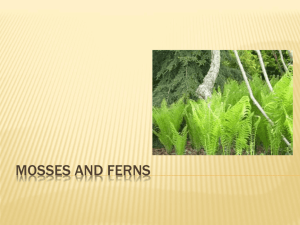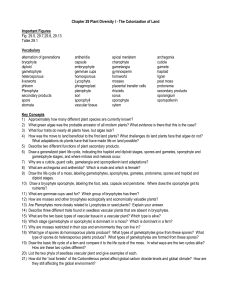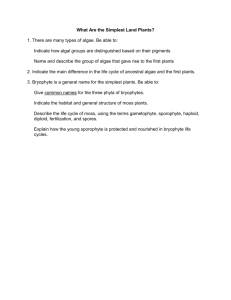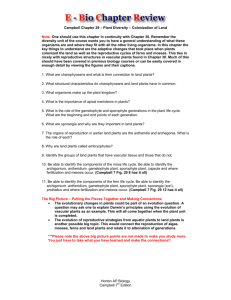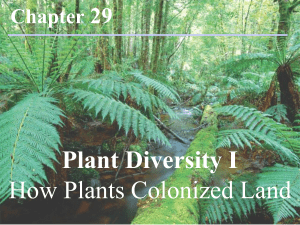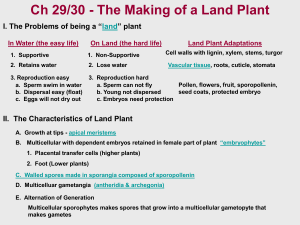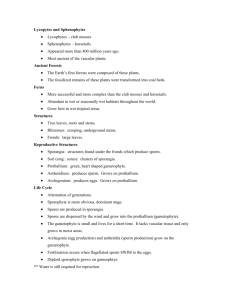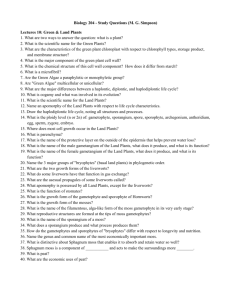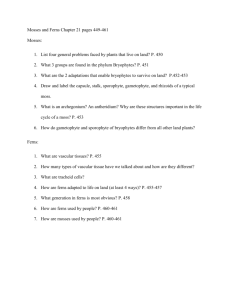Part 1: Live Moss Sample
advertisement
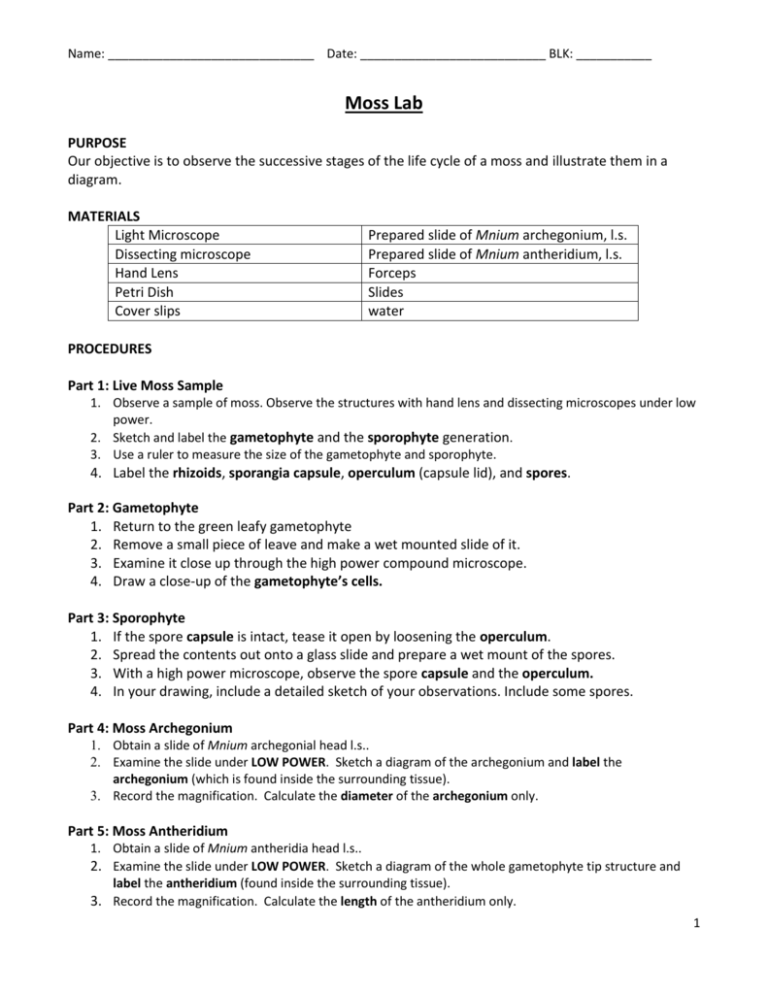
Name: ______________________________ Date: ___________________________ BLK: ___________ Moss Lab PURPOSE Our objective is to observe the successive stages of the life cycle of a moss and illustrate them in a diagram. MATERIALS Light Microscope Dissecting microscope Hand Lens Petri Dish Cover slips Prepared slide of Mnium archegonium, l.s. Prepared slide of Mnium antheridium, l.s. Forceps Slides water PROCEDURES Part 1: Live Moss Sample 1. Observe a sample of moss. Observe the structures with hand lens and dissecting microscopes under low power. 2. Sketch and label the gametophyte and the sporophyte generation. 3. Use a ruler to measure the size of the gametophyte and sporophyte. 4. Label the rhizoids, sporangia capsule, operculum (capsule lid), and spores. Part 2: Gametophyte 1. Return to the green leafy gametophyte 2. Remove a small piece of leave and make a wet mounted slide of it. 3. Examine it close up through the high power compound microscope. 4. Draw a close-up of the gametophyte’s cells. Part 3: Sporophyte 1. If the spore capsule is intact, tease it open by loosening the operculum. 2. Spread the contents out onto a glass slide and prepare a wet mount of the spores. 3. With a high power microscope, observe the spore capsule and the operculum. 4. In your drawing, include a detailed sketch of your observations. Include some spores. Part 4: Moss Archegonium 1. Obtain a slide of Mnium archegonial head l.s.. 2. Examine the slide under LOW POWER. Sketch a diagram of the archegonium and label the archegonium (which is found inside the surrounding tissue). 3. Record the magnification. Calculate the diameter of the archegonium only. Part 5: Moss Antheridium 1. Obtain a slide of Mnium antheridia head l.s.. 2. Examine the slide under LOW POWER. Sketch a diagram of the whole gametophyte tip structure and label the antheridium (found inside the surrounding tissue). 3. Record the magnification. Calculate the length of the antheridium only. 1 Name: ______________________________ Date: ___________________________ BLK: ___________ OBSERVATIONS Part A: Live Moss Sample Total Magnification: ________ Length of one gametophyte strand: ________ Length of one sporophyte strand: ________ Part B: Gametophyte Part C: Sporophyte Total Magnification: ___________ Total Magnification: ___________ 2 Name: ______________________________ Date: ___________________________ BLK: ___________ Part D: Moss Archegonium Part E: Moss Antheridium Total Magnification: ________ Calculate the size of the archegonium. Total Magnification: ________ Total Magnification: ________ Calculate the size of the Archgonium. Calculate the size of the Antheridium. Please complete the discussion questions and conclucsion on the back of this page. DISCUSSION QUESTIONS 1) What are the spores coated with? 2) Why is it important that the spores are coated? 3) Are sporophytes n or 2n? 4) Are the spores n or 2n? 5) Are the gametophyte n or 2n? 6) What is a protonema? 7) What does the protonema become? 8) Is the protonema n or 2n? 9) Is the protonema part of the gametophyte generation or the sporophyte generation? CONCLUSION 3
